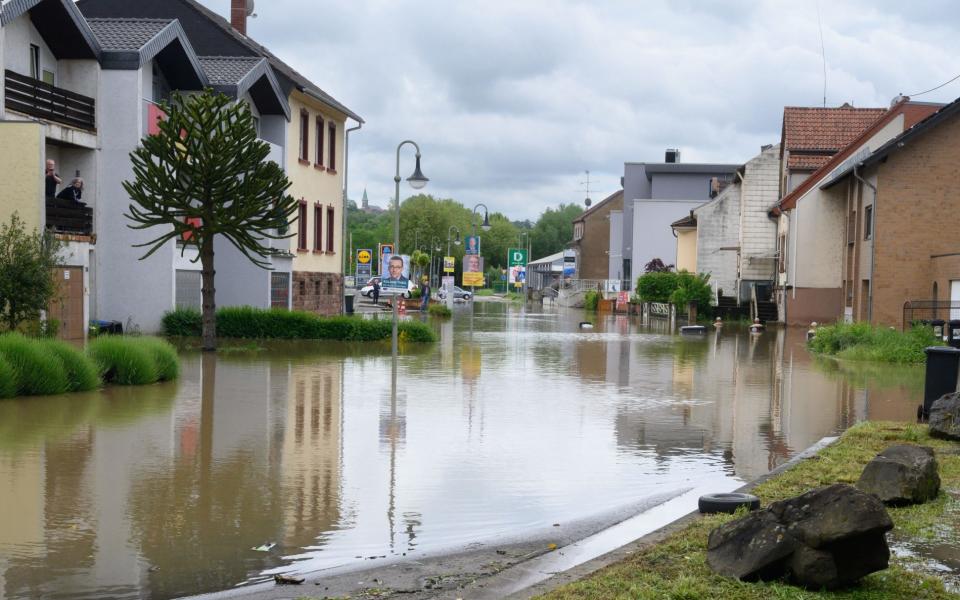Scholz sticks on his wellies to inspect damage caused by flash floods and landslides

Chancellor Olaf Scholz on Saturday toured rain-hit regions of south-west Germany, where rivers have swelled and caused flash floods and landslides.
A huge downpour on Friday in the German state of Saarland deluged buildings, left streets deep underwater and sparked evacuations, with rescuers carrying stranded residents to safety in boats.
German emergency workers were on Saturday starting a major clean-up operation.
Officials said it was the worst flooding in the area in nearly 30 years, with the capital Saarbrücken badly affected and reports saying that a breach in a dyke led to a power station in the state being shut down.
No deaths were reported but at least one person was injured.

Mr Scholz cancelled his attendance at an election campaign event in Saarland, on the border with France, and instead wore rain boots as he walked on a partially flooded road in the village of Kleinblittersdorf together with regional governor Anke Rehlinger.
Visiting a village in the affected area, he said: “We can see here what violence nature can cause and how much we have to constantly prepare for such events.”
In Belgium, the province of Liège was hit by severe flooding overnight into Saturday, with authorities receiving hundreds of requests for assistance and 150 firefighters deployed, governor Hervé Jamar said.

Over the border in the Dutch province of Limburg, two campsites were evacuated early on Saturday as they were threatened by rising floodwaters, officials said.
In France, the Moselle area in the north-east was placed on flood alert as water levels rose in rivers following heavy rains.

Meanwhile in Brazil, a third consecutive week of heavy rains in its southernmost state of Rio Grande do Sul continued to devastate the region.
More than 150 people have been confirmed dead and 104 remained missing, with some 600,000 displaced.
In Afghanistan, fresh flash floods from heavy seasonal rains killed at least 68 people, Taliban officials said on Saturday.
Last week the World Food Programme said exceptionally heavy rains had already killed more than 300 people and destroyed thousands of houses.
Experts say climate change is increasing the frequency and severity of floods.

 Yahoo News
Yahoo News 
